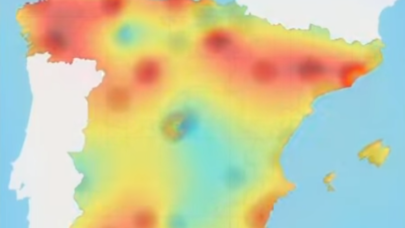
Spanish Researchers Introduce HPC-Ready COVID-19 Spread Simulator
April 7, 2020
With governments in a mad scramble to identify the policies most likely to curb the spread of the pandemic without unnecessarily crippling the global economy, r Read more…

Stony Brook Researchers to Run COVID-19 Simulations on Supercomputers
April 6, 2020
A wide range of supercomputers are crunching the infamous “spike” protein of the novel coronavirus, from Summit more than a month ago to Folding@home to a Russian cluster just a week ago. Read more…

Russian Supercomputer Employed to Develop COVID-19 Treatment
March 31, 2020
From Summit to Folding@home, global supercomputing is continuing to mobilize against the coronavirus pandemic by crunching massive problems like epidemiology, t Read more…

LLNL Leverages Supercomputing to Identify COVID-19 Antibody Candidates
March 30, 2020
As COVID-19 sweeps the globe to devastating effect, supercomputers around the world are spinning up to fight back by working on diagnosis, epidemiology, treatme Read more…

What’s New in Computing vs. COVID-19: White House Initiative, Frontera, RIKEN & More
March 25, 2020
Supercomputing, big data and artificial intelligence are crucial tools in the fight against the coronavirus pandemic. Around the world, researchers, corporation Read more…

Global Supercomputing Is Mobilizing Against COVID-19
March 12, 2020
Tech has been taking some heavy losses from the coronavirus pandemic. Global supply chains have been disrupted, virtually every major tech conference taking place over the next few months has been canceled... Read more…

Summit Joins the Fight Against the Coronavirus
March 6, 2020
With the coronavirus sweeping the globe, tech conferences and supply chains are being hit hard – but now, tech is hitting back. Oak Ridge National Laboratory Read more…

- Click Here for More Headlines

Whitepaper
How Direct Liquid Cooling Improves Data Center Energy Efficiency
Data centers are experiencing increasing power consumption, space constraints and cooling demands due to the unprecedented computing power required by today’s chips and servers. HVAC cooling systems consume approximately 40% of a data center’s electricity. These systems traditionally use air conditioning, air handling and fans to cool the data center facility and IT equipment, ultimately resulting in high energy consumption and high carbon emissions. Data centers are moving to direct liquid cooled (DLC) systems to improve cooling efficiency thus lowering their PUE, operating expenses (OPEX) and carbon footprint.
This paper describes how CoolIT Systems (CoolIT) meets the need for improved energy efficiency in data centers and includes case studies that show how CoolIT’s DLC solutions improve energy efficiency, increase rack density, lower OPEX, and enable sustainability programs. CoolIT is the global market and innovation leader in scalable DLC solutions for the world’s most demanding computing environments. CoolIT’s end-to-end solutions meet the rising demand in cooling and the rising demand for energy efficiency.
Download Now
Sponsored by CoolIT
Whitepaper
Transforming Industrial and Automotive Manufacturing
Divergent Technologies developed a digital production system that can revolutionize automotive and industrial scale manufacturing. Divergent uses new manufacturing solutions and their Divergent Adaptive Production System (DAPS™) software to make vehicle manufacturing more efficient, less costly and decrease manufacturing waste by replacing existing design and production processes.
Divergent initially used on-premises workstations to run HPC simulations but faced challenges because their workstations could not achieve fast enough simulation times. Divergent also needed to free staff from managing the HPC system, CAE integration and IT update tasks.
Download Now
Sponsored by TotalCAE
Advanced Scale Career Development & Workforce Enhancement Center
Featured Advanced Scale Jobs:
HPCwire Resource Library
HPCwire Product Showcase
© 2024 HPCwire. All Rights Reserved. A Tabor Communications Publication
HPCwire is a registered trademark of Tabor Communications, Inc. Use of this site is governed by our Terms of Use and Privacy Policy.
Reproduction in whole or in part in any form or medium without express written permission of Tabor Communications, Inc. is prohibited.
























